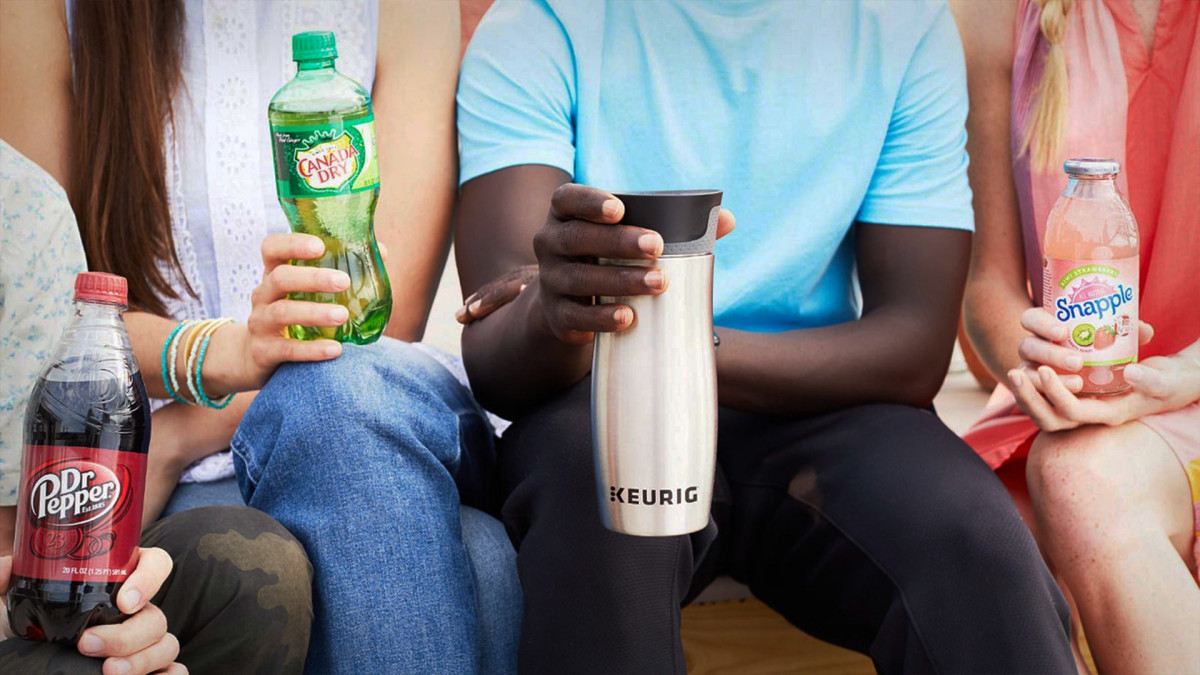
Coca-Cola and PepsiCo dominate the soda business so thoroughly that they have leveraged their success into other categories.
That has been a huge help to both companies as consumer habits have changed. Some people drink less soda, and even diet soda has been dropped by some Americans over concern that it contains dangers that go beyond calories.
In addition, many consumers have upped their water intake, while others can't seem to live without an energy drink.
Related: Forget Bud Light, popular beer brand files for bankruptcy
To varying degrees of success, Coca-Cola (KO) -) and PepsiCo have been able to gain meaningful market share in the U.S. in pretty much every beverage category. Coke, for example, was an early investor in Monster Beverage (MNST) -), which makes the wildly popular Monster Energy brand.
PepsiCo (PEP) -), in some ways, one-upped its rival by acquiring RockStar Energy for $3.85 billion in 2020. Both companies have tried to build their own brands in emerging categories, but they have not been afraid to acquire companies and then leverage their grocery, convenience store, and other relationships to grow sales.
Perhaps the most successful purchase of any beverage brand by the big two was PepsiCo's acquisition of the Gatorade brand when it bought Quaker Oats in 2020. Gatorade's success (well before Pepsi owned the brand) forced Coca-Cola to create the less successful Powerade brand in 1998.
Coke also owns Vitamin Water, a similar product. Gatorade, of course, is not the market leader, but the No. 3 soft-drink seller in the U.S., Keurig Dr Pepper (KDP) -), has made a strong move into competing with Gatorade, Powerade, Vitamin Water, and other beverages in the growing hydration space.

Image source: Keurig Dr Pepper
Keurig Dr Pepper invests in Electrolit
Hydration beverages, or sports hydration beverages as they are sometimes called, have grown into an $11 billion category, according to data provided by Keurig Dr Pepper.
And while Gatorade has been the dominant player, Coke's success with Powerade and Vitamin Water shows that there is room for more than one successful brand in the category.
Now, Keurig Dr Pepper has made a major move into the sports hydration beverage space after agreeing with Grupo Pisa to sell, distribute and merchandise Electrolit, "a premium hydration beverage, across the United States as part of a long-term sales and distribution agreement."
This move represents Keurig Dr Pepper's first exposure to the sports hydration market, which the company called "a key white space category." The deal, according to Keurig Dr Pepper, will "significantly expand Electrolit's distribution and continue the brand's accelerated growth."
"Electrolit is growing at a strong double-digit rate in the U.S., where it already generates more than $400 million in retail sales and has increased more than tenfold over the past five years," Keurig Dr Pepper said in a news release.
Coca-Cola and Keurig used to be partners
Two years before it merged with Dr Pepper, Keurig, under the corporate name Green Mountain Coffee Roasters, or GMCR, was best known for its single-serve K-Cup coffee brewers. The company partnered with Coca-Cola in 2015 to launch Keurig Kold, an attempt at a single-serve soda maker.
At the time that product was announced, Coca-Cola took an equity stake in the coffee-maker company.
"Under the global strategic agreement, GMCR and the Coca‑Cola Company will cooperate to bring the Keurig Cold beverage system to consumers around the world," the companies said in a 2014 news release.
"In an effort to align long-term interests, the companies also entered into a common stock purchase agreement whereby" Coke would buy a 10% minority equity position in GMCR.
The Kold, of course, never caught on with the public and lasted for only about a year, Coca-Cola sold its GMCR stake when JAB Holdings took the company private in 2015 (before bringing the brand back to public markets with the Dr Pepper merger).
Get exclusive access to portfolio managers and their proven investing strategies with Real Money Pro. Get started now.







